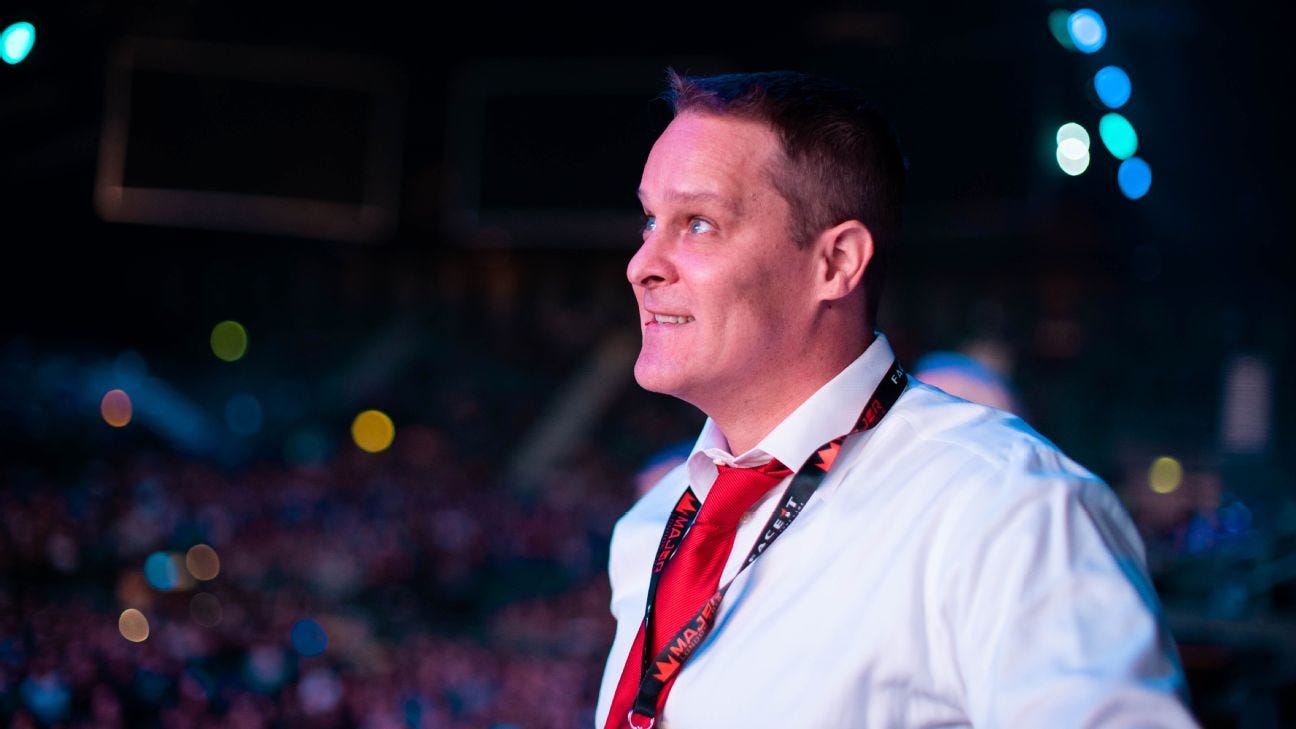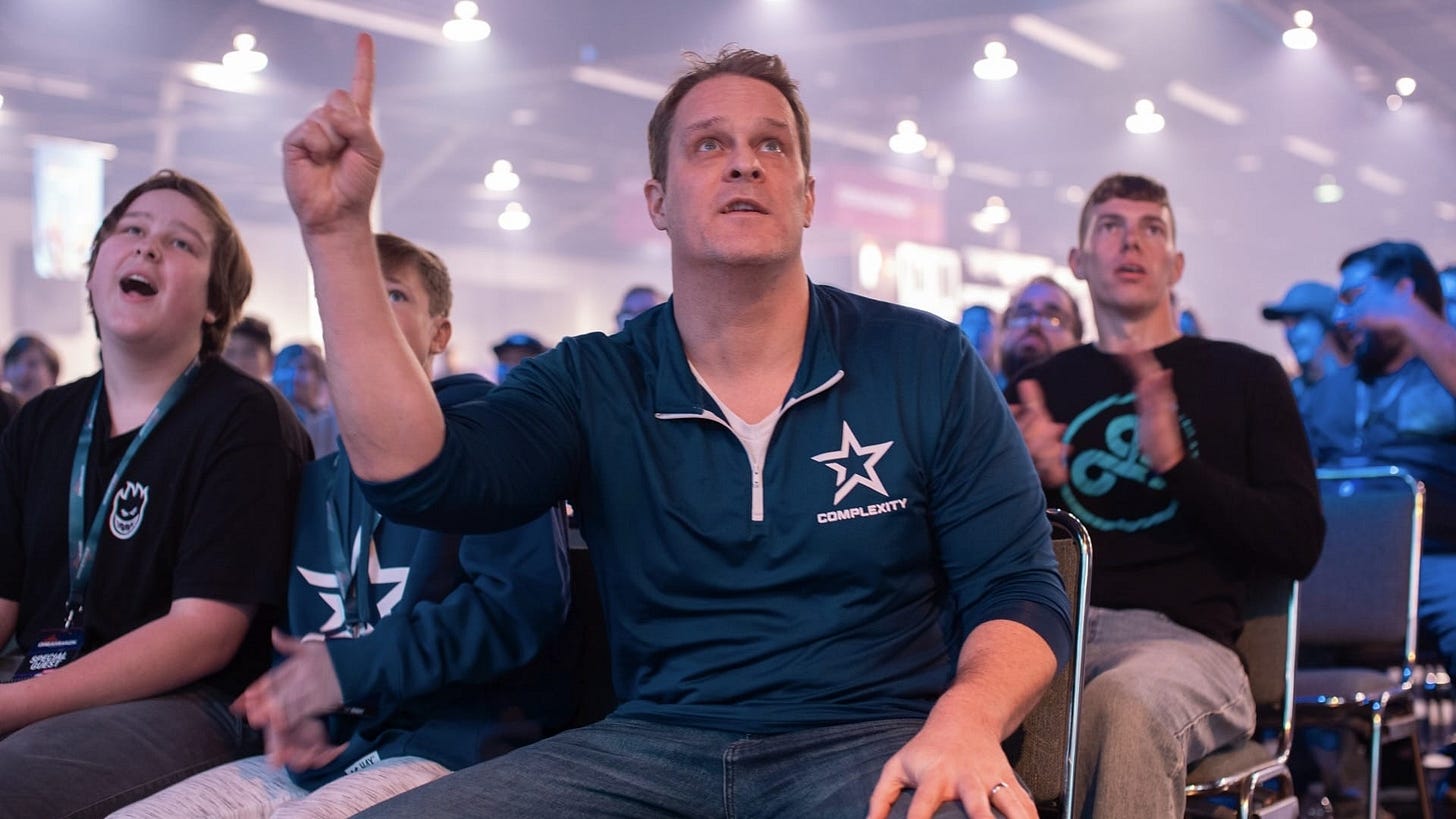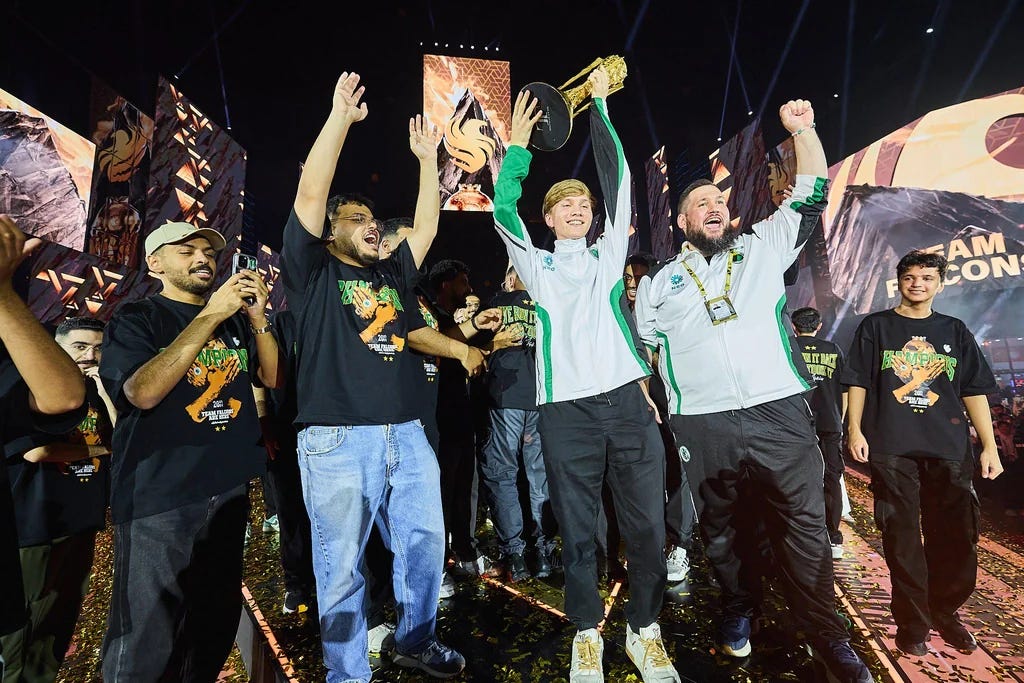The Lack Of Complexity In Moden CS Esports
Another legacy org withdraws from Counter-Strike because it's hard when Saudi doesn't pay for everything
While lots of organisations have been and gone over the years in Counter-Strike this week saw a true gut-wrencher for those of us who have been around a while. Via video a crestfallen Jason Lake told us that Complexity would be exiting the game that made their brand. Founded in 2003 and present in every version of the game, Complexity managed to hit almost every speedbump that can lie in the path of a speeding esports organisation. They tussled with bigger and wealthier names, were folded into failed conglomerates, existed under a pseudonym in the form of coL, wrestled with lawyers to acquire talent, accepted corporate ownership and fended off a subsequent merger… Whatever it took they somehow survived and when Lake raised the capital to bring back Complexity to the only steward suitable to protect it, namely himself, things were looking up. Now, they are no more and it’s uncertain when we’ll see them again.
How did we get here? Well, let’s just say Counter-Strike has been a broken business in one form or another for as long as I’ve been writing about it. It doesn’t need to be re-litigated here… You know who did what and you know that it’s the wider story of esports. Small people, poisoned by the twin venoms of greed and insecurity, made decisions only informed by that heady cocktail and they turned a potentially sustainable business into a Jenga tower of impossible expenses and conflict of interest. The only way for it to survive? Find itself a constant stream of steady-handed sugardaddies all willing to underwrite the impossible costs until one day even the pretence of possessing ethics has to be jettisoned to appease the owners of end stage esports.
Appropriately the announcement happened ahead of the Saudi state owned Esports World Cup, an event where those who took the sportswashing money get to compete for more of it, all for the low, low cost of your tongue. A truly artificial event in every sense of the word, fans that are literally being bussed in will unenthusiastically applaud as teams meet their financial obligations to esports biggest paymaster. The press releases will talk about prestige but we all know the truth… That’s if we even watch at all. If the games don’t tickle your fancy stick around for the state-owned awards show that will dole out accolades to everyone connected to the Saudi machine. Smile, wave and say after me… “They drive now.”
This is the grim reality that has took over Counter-Strike esports, something far, far worse than the so-called “franchise era” of the game. There, haves and have not were divided only by an amount somewhere between $3 – 5 million. Now, they’re divided by a number bigger by multitude, an ethical quandary and a market that hasn’t been this inflated since the American VC companies threw tens of millions at grifter owners who then blew it on doomed to fail projects like the Overwatch League.
For context, let’s look at Complexity’s recent history. In 2017, a period we can now safely refer to as “the good old days,” Jerry Jones and John Goff bought a majority stake in the organisation for an undisclosed amount. In 2021 the brand was then sold for $27 million to Gamesquare, a tech and media company based in Texas. Complexity was to be their esports project but when they were presented with an opportunity to buy the beleaguered FaZe organisation in 2024, including the esports division, they pulled the trigger on a $17 million purchase.
Now, this presented something of a problem for Complexity as not only could the two brands not be further apart in values and heritage but also the resultant conflict of interest would mean only one team could prevail. Understanding this Jason raised $10.36 million and bought his brand back for the second time in his professional life. In the time since he worked tirelessly to not only bring in investors and sponsors – spoiler, Jason’s colleagues poisoned that well to a point where we may never feel safe drinking water again – but also min/max his teams so they could run for as long as possible if the money didn’t come in. Fifteen months later they are closing their historic division, maybe for the last time.
So, what’s the lesson? What do we learn? Well, it’s now safe to say that operating a Counter-Strike team, particularly if you happen to be North American based, is contingent on whether you are able and willing to be brought into the Saudi Arabian fold. Outside of it is barren. There’s no real way or means to run a meaningful esports organisation. You can either have no aspirations of winning, in which case who cares what roster you assemble, or elect to become a talent farm for others, selling your best players repeatedly to fund the discovery of their equivalent.
And just to be clear I don’t think we “need” North America in Counter-Strike. Frankly, after what the supposed custodians did to the scene – ESL stealing away earned Pro League slots, the wastefulness of MGO owners across multiple titles, the attitude of players all too easily seduced by streaming money over trophies and a constant public flip-flopping about whether CS is a good investment or not – it simply didn’t deserve to succeed. I can say unreservedly that Jason did.
You won’t find anyone who cares about the game more. I watched him stood up and argue with TV executives over at Turner when they were talking about gimmicks that the broadcast could have. A stalwart of the CGS years, Jason understood the simple truth about Counter-Strike is all you have to do is put it on the screen in order for people to fall in love with it. He could have driven away a big payday there but he didn’t care. He wanted it done right or not at all. Many of the other owners in that room said nothing and gave him dagger eyes for the rest of the meeting.
It says something about priorities and passion and purpose. Why do we love the things we do? Why do we fight to make them better? Why do we neglect more rewarding pursuits to do so? I can’t answer that. I got the same sickness Jason does. He could have sold the brand, walked away, put his feet up and spend the rest of his years with his family and smoking cigars. I’ll also not romanticize it too much. There’s a timeline where he takes a bunch of Saudi money, same as everyone else, and I’d stay mostly silent about it. If anyone deserves a pass it’s him.
The fact that we now have a cabal of kingmakers in Counter-Strike should worry every fan. Those who show fealty to the Saudi Arabian state, who go forth and proselytize about how misunderstood their monarchy is and participate in all their projects, are showered in money and included in their propaganda. Those who don’t, or won’t, or aren’t deemed worthy enough of the opportunity, they have to go it alone in a market ruined by those now in league with Riyadh. In America especially the term “esports” now is about as attractive to investors as pitches featuring the phrase “this might look like a pyramid scheme but…”
You see it turns out running a real esports organisation, one with a soul and history, is pretty complex. If you prefer you can run an offshoot of the Saudi Arabian reputation saving mission and then things get real simple. Attend our event – we’ll pay. Don’t have that kind of team? We’ll pay. We can’t get our own fans… We’ll pay for yours. Fill social media with how great we are and we’ll reward you. Oh and of course you get a share of the prize money too. In the end there really is no complexity at all.








What a horrible day to be a CS fan. RIP Complexity. Esports don't deserve Jason Lake. Also great article, as always.
Coming Soon, To An Esports Near You